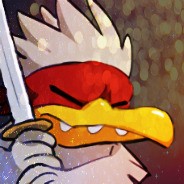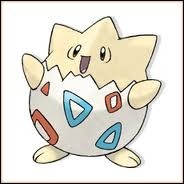Early Juries A jury is a body of lay men and women randomly selected to determine facts and to provide a decision in a legal proceeding. Such a body traditionally consists of 12 people and is called a petit jury or trial jury.
The exact origin of the jury system is not known; various sources have attributed it to different European peoples who at an early period developed similar methods of trial The jury is probably of Prankish origin, beginning with inquisition, which had an accusatory and interrogatory function. Trial by jury was brought to England by the Normans in 1066.
In medieval Europe, trials were usually decided by ordeals, in which it was believed God intervened, revealing the wrongdoer and upholding the righteous. In the ordeal by water, for instance, a priest admonished the water not to accept a liar. The person whose oath was being tested was then thrown in. If he floated, his oath was deemed to have been perjured. If he was telling the truth, he might drown but his innocence was clear.
In 1215, however, the Catholic Church decided that trial by ordeal was superstition, and priests were forbidden to take part. As a result, a new method of trial was needed, and the jury system emerged
At first the jury was made up of local people who could be expected to know the defendant A jury was convened only to "say the truth" on the basis of its knowledge of local affairs, The word verdict reflects this early function; the Latin word from which it is derived, veredictum, means "truly said".
In the 14th century the role of the jury finally became that of judgment of evidence. By the 15th century trial by jury became the dominant mode of resolving a legal issue. It was not until centuries later that the jury assumed its modern role of deciding facts on the sole basis of what is heard in court.
2. Письменно ответьте на следующие вопросы:
1. What is a jury?
2. How were cases resolved before jury system
3. Why was there a need for jury system?
4. What was the function of the first juries?
5. How did the function of the jury change centuries?
3. Найдите в тексте слова, которые обозначают следующее:
1. examination of a case before a court of law;
2. a former method of trial used to determine guilt or innocence by subjecting the accused person to serious physical danger, the result being regarded as a divine judgment;
3. a solemn appeal to a court to witness one's determination to speak the truth;
4. freedom from sin or moral wrong;
5. a belief or practice resulting from ignorance, fear of the unknown, trust in magic or chance.
4.Запишите следующие предложения в косвенной речи.
1. "I have something to show you", I said to her.
2. "I couldn't get into the house because I had lost my key, so I had to break a window", he said.
3. "Who put salt in my coffee?" he asked.
4. "Don't forget to thank Mrs Jones when you are saying good bye to her", said his mother.
5.Составьте и запишите 8 типов вопросов (общий, специальный, альтернативный, разделительный (2), вопрос к подлежащему, косвенный (2)) к выделенному предложению в тексте.
6. Составьте предложения, расположив слова в нужном порядке.
1. time/see/brother/that/I/at/only/to/my/was/the/person/wanted.
2. make/it/moon/be/the/tourist/when/to/regular/will/possible/to/trips?
3. cup/after/there/like/good/a/hard/nothing/tea/of/day/is/a.
7. Образуйте производное слово, подходящее по смыслу предложения.
1. All of them got theto the party. to invite
2. Mr. Field is a veryneighbour. to help
3. Yourwillbe taken into considerationto propose
4. He is ansinger, very few people to know
haveheardhissongs.
8. Переведите на английский язык слова, данные в скобках.
1. I've never seen (такие)high mountains.
2. The red dress is (хуже)than the blue one.
3. You can't believe everything she says, (нетакли)?
4. The little boy was (напуган)by the look of the big dog.
5. Where did you (учился)to play the guitar?
6. I said I could (сводить)him to the theatre.
7. It doesn't (делает)any difference now.
8. Oh, here you are! And where are (другие)boys?
9. .
1. a) Neither of the two boys spoke no German.
b) No one of the two boys spoke German.
c) Neither of the two boys spoke German.
2. a) There isn't any other way to do it.
b) There isn't any another way to do it.
c) There isn't no other way to do it.
10. Напишите подходящие по смыслу фразы-стимулы к данным ответам.
291
428
Ответы на вопрос:
1 swim - swam - swum
2 I'd like to be a singer. I hope I will earn much.
3 was preparingm came
4 +
5 I was watching TV at 7 o'clock yesterday.
6 when
7 Aizada didn't make breakfast for the whole family this morning.
8 Will there be robots on every house ?
9 +
10 told
11 feed - fed, fed
drive - drove, driven
teach - taught, taught
dig - dug, dug
12 +
13 is eating
14 Will you go out tonight?
15 haven't seen
16 +
17 is
18 ... was Nurlan doing when you knocked ...
19 I'm going to visit my grandparents.
I'm going to go to the countryside.
Реши свою проблему, спроси otvet5GPT
-
Быстро
Мгновенный ответ на твой вопрос -
Точно
Бот обладает знаниями во всех сферах -
Бесплатно
Задай вопрос и получи ответ бесплатно

Популярно: Английский язык
-
Find the words in the text that explain the following meanings 1. to...
 Kalltan20.06.2022 09:54
Kalltan20.06.2022 09:54 -
2 1.18 Read and listen to the text. Complete...
 skyline1234526.11.2021 22:49
skyline1234526.11.2021 22:49 -
Поставьте неправильные глаголы в past simple 1)catch 2)send 3)find...
 ukrainahfy24.02.2021 13:45
ukrainahfy24.02.2021 13:45 -
3. Mike s bike is red. A. True B. False зделайте правильно это соч...
 juliadzyombak19.02.2021 15:19
juliadzyombak19.02.2021 15:19 -
Можете придумать актуальность проекта по теме происхождение штатов...
 Катядонецк18.02.2020 05:21
Катядонецк18.02.2020 05:21 -
Don-написать имена 2 кл . афанасьев...
 9438dima24.07.2021 02:31
9438dima24.07.2021 02:31 -
Agraphics program interprets the input. нужно задать 5 вопросов на...
 WirexiaEnderman16.04.2021 00:13
WirexiaEnderman16.04.2021 00:13 -
They asked for out adress. she looks after the patients well. задайте...
 muckanvicktoria21.07.2021 06:26
muckanvicktoria21.07.2021 06:26 -
Записать по 06: 45,07: 15,08: 30,03: 18...
 DanilVenstor10.03.2020 11:20
DanilVenstor10.03.2020 11:20 -
Videoconferencing programs enable users to talk to and see each other....
 NastyKek455629.03.2023 23:44
NastyKek455629.03.2023 23:44

Есть вопросы?
-
Как otvet5GPT работает?
otvet5GPT использует большую языковую модель вместе с базой данных GPT для обеспечения высококачественных образовательных результатов. otvet5GPT действует как доступный академический ресурс вне класса. -
Сколько это стоит?
Проект находиться на стадии тестирования и все услуги бесплатны. -
Могу ли я использовать otvet5GPT в школе?
Конечно! Нейросеть может помочь вам делать конспекты лекций, придумывать идеи в классе и многое другое! -
В чем отличия от ChatGPT?
otvet5GPT черпает академические источники из собственной базы данных и предназначен специально для студентов. otvet5GPT также адаптируется к вашему стилю письма, предоставляя ряд образовательных инструментов, предназначенных для улучшения обучения.
